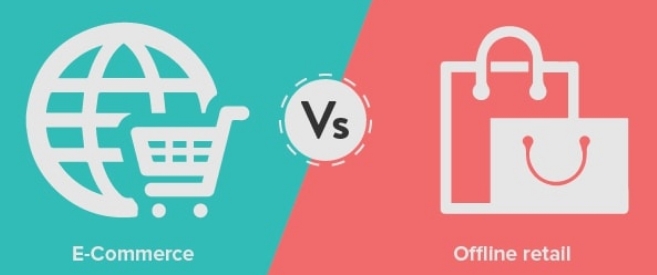
A recent report from BBC News claims that rather than dismissing the high street, online retailers are increasingly choosing to open brick-and-mortar stores.
This change in the tide is occurring in part, because it is increasingly difficult to get noticed online, and also retailers are recognising the benefits of accessing customers through multiple channels.
A recent US survey by a group of LIM College students in conjunction with the National Retail Federation Student Association (NRFSA) found that 68% of the 18-25 year-olds surveyed “prefer to shop in stores than online for apparel and shoes.”
This makes sense, because clothes shopping is a sensory experience and purchasing online comes with a number of disadvantages including inconvenient delivery times, delivery costs, risk that the product isn’t fit for purpose and a risk of sharing bank details online.
Whilst the majority of DVD, CD and book sales are now online, clothes shopping remains a pastime that many shoppers prefer to do in store.
Pushed by intense competition, brick-and-mortar stores have woken up to the fact that they need to make shopping a pleasurable experience by providing excellent customer service and turning the shop floor into a spectacle.
Next weekend the show-stopping Louis Vuitton Townhouse opens in Selfridges, London.
The Townhouse takes customers on a voyage of discovery over three floors, each connected by a state-of-the-art circular elevator which gently revolves inside a glass tube.
There are fabric walls, digital presentations, super shiny floors – it’s a piece of theatre and you are invited.
Pop-up shops like the type you find at Boxpark, Shoreditch, provide an accessible way for brands to showcase their products to the public for a limited amount of time.
It creates a buzz and expands their customer base, allowing shoppers to touch, feel and try things on – to find a deeper connection to ‘the brand’.
For new brands, particularly those with eco credentials or designer price tags, this is a vital way to create consumer loyalty.
Customers might be particularly anxious about spending a lot of money on a product that they have only seen online if they know little about the brand or are unsure about terms such as organic, fair trade, artisan or recycled.
Say a sustainable fashion brand is selling organic cotton t-shirts for £20 but the customer has preconceived views that organic cotton is lesser quality; they won’t buy it.
If they see it in store however, and try it on, they will see that the cotton fabric used is actually beautifully soft and very good quality.
Ethical brands online will only be found by a customer base who goes looking for them.
They need to be marketed to a mass customer base, not just for their eco credentials but for their design, quality and style.
Many independent stores stock small, ethical brands.
People Tree for example has more than seventy stockists across the UK and has even been stocked by Topshop Oxford Circus.
Department stores such as John Lewis are perfectly placed to offer these brands, and in many towns it would give them a USP rather than duplicating the high street giants.
There is nothing wrong with enjoying shopping, just as there is nothing wrong with hating it.
Retailers are starting to see that the process of shopping is changing, and what they need to offer to keep our attention is changing.
You can buy online and collect in store, you can order in store and have goods delivered to your door, you can even try before you buy in store in new so-called ‘guide shops’.
The boundaries between e-commerce and bricks-and-mortar are blurring, and that can only be a good thing as we homogenise our shopping habits moving forward and end up with the best of both worlds.
You May Also Like
No posts were found for display
